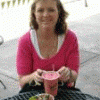Search the Community
Showing results for 'vegetarian'.
Found 4,909 results
-


Very low-carb diets may INCREASE mortality
ouroborous replied to ouroborous's topic in Gastric Sleeve Surgery Forums
There was a statistically significant mortality increase in the high animal-Protein diets (P = 0.051, which is definitely enough to infer a correlation). However, I'd again like to point out that it's likely that the increased mortality is from the increased animal Proteins, not from the carb restriction. Carb restriction on its own is still net neutral, according to the bulk of research. So I guess the best diet choices are mostly vegetarian, high plant protein and maybe some supplementation with lower-fat animal protein sources like whey, etc. Still, I think it's important to keep abreast of current research, and not just blindly follow what the crash diet books tell you. -

Post-Op Soft Pureed Foods: Palak Paneer. Spinach with 10 gms Protein
gamergirl posted a blog entry in Gamergirl's Blog
I massively modified this recipe from http://www.amazon.co...ian slow cooker. The original recipe calls for 2 lbs of spinach and makes so much a sleever would be eating it until they died. It's also waaaay too spicy in the original and hers is made in the crockpot. MUCH faster in pressure cooker. Ingredients 1 lb fresh baby spinach Peel where necessary and roughly chop: -1 large yellow onion -2 medium tomatoes -5 cloves of garlic -1 2 inch piece of ginger -1 serrano or jalapeno chili 2 tablespoons ground cumin (grind in coffee grinder yourself or buy amongst mexican spices) 1 tsp or less cayenne pepper. Put less, you can add more later 2 tsp garam masala (can buy in most stores) 2 tsp turmeric 2 tsp Salt 1 packet fried or fresh paneer (indian grocery store, frozen section). I will also post recipe for homemade since this is good source of vegetarian high protein. Directions Pressure Cooker: If making in pressure cooker, dump all ingredients except paneer together and set to high pressure for 4 mins. Crockpot: Cook on high for 3 hours. Push the spinach down once so all gets moist. When done, use as immersion blender and mush everything up into either a very smooth puree, or leave some bits unchopped, per your diet stage. Gently add paneer until mixed in. Serves 6 Calories: 139 Fat: 9 Carbs: 9 Protein:10-
- post-op
- pureed food
-
(and 1 more)
Tagged with:
-
There are alot of really good vegetarian sites. I was a vegetarian for 5 years. Can you eat eggs? If you can, don't worry eggs,cheese and beans you can get all the protein you need.
-
I have a slim fast drink for lunch and have Pasta, vegetables, or something else I am able to eat (I'm a vegetarian). I exercise around four times a week, usually swimming for 45 minutes or going on the elliptical for around 30 minutes. I do feel I have restriction for what I can eat or how fast I eat but not how much I eat. I have a 10 cc band filled up with 7 ccs. I am frustrated because I am not losing weight. Any suggestions?
-
Stir fried tofu can be an issue if the outside is very crisp. You'll do better with it if you cut it into smaller pieces. Sometimes it doesn't chew easily and can be difficult to cut up with a fork or chop sticks (usually the only flatware served with tofu dishes I have..in Asia, Vegetarian restaurants).
-
Try cutting back to liquids for a couple more days and give your stomach a chance to settle down. Some people (myself) simply can not tolerate meat of any kind. It's difficult to digest. My 2 daughters are vegetarian and after my band, I found myself joining the band wagon with them. I've also found eating with a baby spoon to keep the bites very small helps as well. Its sure gets to be a guessing game sometimes trying to figure out what to eat or not to eat. Slow down, keep it soft & smooth, and it should get better. Some people can jump to solid the day of their fill, some need to be on liquids 5+ days. Good luck :tt2:
-
The more heavier soups, like cream of broccoli, etc, really helped me....even when I was allowed to move onto mushies, I still preferred the heavy soups, and then vegetarian chili, etc. But then nothing is going to curb the hunger/cravings for me until I started getting fills, and then it took a few before it finally kicked in...I even gained weight between my first and 2nd fill......AKA "Bandster Hell", or as I like to call it the "White Knuckle Club"...just have to hang on!
-
It's been no big deal for me, either. I rarely get a lunch break, so my normal work day consists of constant grazing.....mixed nuts, Quest bar, Protein smoothie, Jerky, string cheese, whatever I can eat in between appointments. My partner actually comments about how I'm always eating. As for going out and buffets, etc. I just eat what I can eat, no biggie. I often split an entree with someone who's also "watching their weight". Or I get whatever I want and end up with a lot of leftovers. Everyone knows I've had surgery so they are used to what I eat and no one really cares. I was at a memorial service yesterday where the served spaghetti and meatballs, vegetarian lasagna, bread, salad and various Desserts. I had 1 meatball (no pasta), some salad, and dissected the layers of 1/2 piece of lasagna to get mostly the veggies and cheese. A little later I split a cookie with someone and took a couple bites of someone else's cinnamon roll. Oh yeah, and drank 2 16 oz bottles of Water but passed on the beer and wine.
-
I became a vegetarian in March 4 months post op- I get my protein in Tofu, meat alternatives (tofurkey, veggie burgers etc) Kale, Green smoothies etc... I have added MILA to my foods for omega 3's and I eat steel cut oats every day for breakfast. I have lost about 26 lbs since I started the vegetarian diet and feel great- Don't feel deprived, lethargic, sleepy etc... Should have done this YEARS ago....
-


This seems like a lot of food
deedeemuffin replied to JRFuerst's topic in Post-op Diets and Questions
Thoughts: Eat very slowly & start with your protein. Odds are you won't get through even all your protein. If you do, eat a little veggie. Yes, eventually you will be able to eat all that at once. I am 6 months out & a vegetarian. So, my meal plan varies a little from yours. Your listed breakfast is something I would eat & I don't think that I could handle that much until just recently. -
I had a similar experience but only had to be on the liquid diet for 1 weeks. When I got to have a scrambled egg I was sooooooooo excited but it sat on my stomache like lead. This went on for another 4 weeks. Low-fat Cottage cheese, vegetarian refried beans, applesauce, cream of wheat and mash potatoes truly helped. I not good with plain yougurt I was told that canned chicken and tuna add low fat mayo was the best. Each food you have to introduce slowly and 1/8- 1/4 cup max. YOU HAVE TO DRINK AT LEAST 70 GRAMS OF PROTEIN to help with the meat cravings. I did eat a small slice of pizza during my 4th week when my daughter came home from college that weekend. Low Fat string cheese also is a treat. 4th week turkey, fish, lean chicken, shrimp & crab meat. Veggie and some fruit too. So hang in there.
-
Heya thanks for your reply. I've just discovered this forum and don't know which vegetarian vegan section you're referring to
-
Look under the Forum tab for the Food and Nutrition Forum. There is a sub Forum for Vegan/vegetarian the 4th down.
-
There is a whole section of the forum dedicated to vegan/vegetarian, with over 1500 posts. Check it out. I am vegan and follow a Whole Food Plant Based eating plan. I started this about a year after surgery, and have never felt better. Protein supplements are necessary immediately after surgery until you can get at least 60 grams of protein from normal food. I've used Orgain shakes and Garden of Life powder. I think there are a LOT of good recipes in the Forks over Knives magazines that come out quarterly. The fall issue featuring Comfort Foods was excellent. Even if I tweak the recipe a bit to my own spice preferences, they give me great ideas and a starting place for a meal. I just made a really yummy jackfruit chowder and added some cannellini beans and corn to up the protein a bit. Anyway, I get great ideas from the mags and my family likes them, too. PS: AnaBar, almond mild doesn't really have much protein. Can you switch to soy or pea based milk like Silk or Ripple?
-


Bread and rice?
Pedro Valle-Inclan replied to beachwalker4rny's topic in Gastric Bypass Surgery Forums
Yeah and remember there's a fair amount of us vegetarian bariatric folks too! So legumes of course HAVE to be part of the diet, I eat black bean soups, baba ganoush, chiles, (and I'm 9 weeks out) and lentils... -
So I decided to drop a friend who literally told me I was "taking the easy way out" if I got this surgery and all the months leading up to it would say I was "pathetic" and "lazy" just threw a slew of disgusting insults my way which made me feel shitty Little back story: I'm 22 and struggled with my weight my whole life (due to PCOS and other medical things) from 13-19 years old I suffered anorexia and got down to 80 something pounds (I was literally on my death bed)so right when I graduated high school for an entire year after I was inpatient in the hospital and recovering from the anorexia when I got out I guess I just couldn't stop gaining weight? (PCOS, hereditary etc)It started triggering me a lot and I would try everything to lose weight! I'm a vegetarian I work with dogs running around all day with them constantly moving very active job so you can imagine my frustration so I decided to go this route and I'm 3 weeks out and 25 pounds down and I'm doing very well this is kinda going all over the place lol sorry to whoever reads this Anywhoooo my "friend" would just put me down constantly and they knew me during my anorexic days they knew me during the recovery days they saw how much I struggled with weight gain and loss and still had the audacity to say if I went through with this procedure I was taking the "easy way out" and they'd "never be able to look at me the same" so a couple days before my surgery I dropped them and I gotta say I don't miss them at all if anything this surgery is HARDER than doing it on your own it's a fucking surgery for fucks sake #1 and #2 there is no going back you gotta learn new ways to eat you gotta take vitamins and minerals you gotta make sure you get a certain amount of protein everyday this is by no means "easy" and it still fuckin annoys me that people have the audacity to say some dumb shit like that Sorry this went like all over the place I'm just annoyed at the moment and I had to vent about it
-
The Morningstar products are good (vegetarian protein). I like the breakfast patties (like sausage patties) for 10 g of protein and 80 calories, plus they are tasty--and the "meal starters" (also Morningstar) vegetarian meatballs. Also, fat-free crumbled feta cheese is a good source of protein, though it's a bit high in sodium so I don't eat it every day (same with fat-free cheese). I like greek yogurt with chocolate protein powder and splenda mixed into it. Or PB2, the dry peanut butter. Tastes like peanut butter or chocolate mousse....
-


lap band or bypass?
Chickie replied to hope2bhealthy's topic in PRE-Operation Weight Loss Surgery Q&A
Oh, so you wanted to know what the people who are at goal did to get there? Personally, I am a fairly strict Vegetarian, eat organic and unprocessed foods as often as I can, walk everywhere I can, run 5km a day and do strength training 3 days a week. Sorry if I misunderstood your question! -
I'm headed to mexico for my surgery. Where did you Go? Do they have any post-op protocols or someone you can contact with your current concerns? Did they have you speak with a nutritionist pre-op to clarify vegetarian options?
-


My pouch has made me a Vegetarian...and I'm okay with it
B-52 replied to kespy74's topic in Post-op Diets and Questions
Having Lap Band surgery, it soon became difficult to eat Red meat, and my Dr. concurred it would..... For years, my cardiologist and other Dr.'s have been trying to get to to cut back on my meat consumption for health reasons.... Seeing how Red Meat is not very band friendly, and it was something other people wanted me to do, I stopped eating it altogether....that has been over 3 years now. I would not say I am a vegetarian, I still eat chicken and fish...but since I am eating so little due to the surgery, I am very conscious of what I do eat and I am eating less and less chicken.... Some people become vegetarians - vegans for moral reasons, for me it is purely for health reasons and I have been able to tell the difference.... BTW, I also cannot eat things made from flour/dough such as breads, Pasta, etc...no rice either... -
Hi, my doc recommended prescriptfit, which you can find at: PrescriptFit, Medical Nutrition Therapy and Weight Loss Plan Figure 2 tubs/week. I'm a vegetarian so I didn't try the Soup. But, the shakes are very filling. I know with slimfast and such, I was hungry w/in a 1/2 hour after drinking them. The prescript fit shakes kept me full for 3 to 4 hours. I lost 10 pounds the first two weeks on the shake. And that included one meal out with friends to olive garden. Good luck
-
I am an ovo-lacto vegetarian (no meat but will eat dairy products and eggs). In the last two years I've even been a raw vegan - a fantastic healthy diet but not socially easy or viable for very long (no meat, dairy, eggs or any cooked foods... just raw fruits, vegetables, nuts and seeds). I was wondering if there are any other vegetarians here and if the information you received was different since you could not eat meat, fish or poultry? Robin
-
I am a vegetarian & am working on weaning out dairy & eggs to be vegan. You will get a lot of differing opinions on this topic, but ultimately you need to make the decision that's right for you. It is actually very easy to be a vegetarian with the sleeve. You can get in your Protein in a variety of ways: cheese, tofu, dried edemame (this has been a life saver at 14g of protein for only 1/4 cup), yogurt, meat alternatives (I like Gardein products), Beans...I'm sure you get the picture. I have tried meat twice since being sleeved 6 months ago. It was moist & I chewed very well & vomited both times. My sleeve doesn't seem to like meat at all. So, I make it a point to just eat as healthfully as I can using mostly plant based whole foods. I can not get in the quantity that I did before being sleeved. I keep track of my food intake on My Fitness Pal so that I make sure to get in enough protein. Different doctors & nutritionists will have differing opinions too. My nutritionist says that my diet is a little carb heavy, and that I would lose weight more quickly if I ate less fruit, rice & beans, tofu & rice, etc. You know what, I've lost 101 lbs. in 6 months so i'm not really that concerned. I eat what feels right & healthy. I drink my Water. I exercise. That seems to work out just fine. So, don't let anyone discourage you from being vegetarian or even vegan. It is possible to get in all your protein without any animal products. It is also not the end of the world if you eat 2 pieces of fruit a day instead of the half a piece recommended. You can also eat healthy grains in moderation too. Quinoa is a great one. So, listen to your body's intuition. Sometimes it's the smartest thing that we can do.
-
try going vegetarian and then u can feel good about eating healthy ... GoVeg.com // Features // Downed Cow
-
i'd like to hear if they're on clear or not... i have been very creative with my diets, and i am a vegetarian, so will not eat meat broths. i have been making a lot of stocks and soups from scratch (veggie broth is easy to make, as are a lot of soups). I've also been doing lots of smoothies and drinking ensure, and having popsicles and juices and soymilk...















